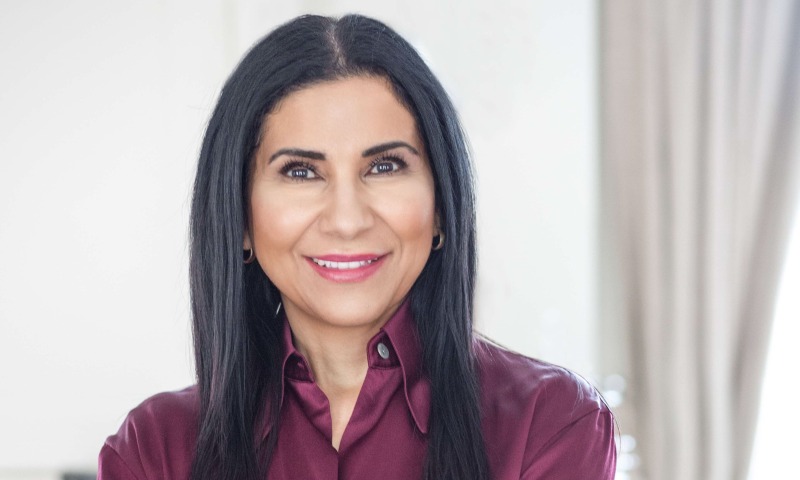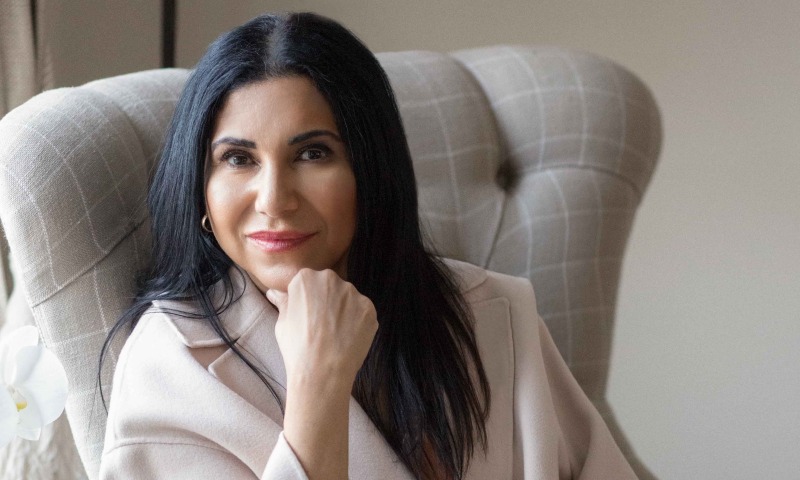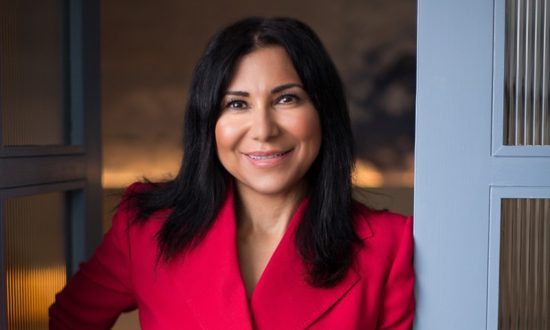Eman Martin Vignerte is the Director of External Affairs and Government Relations at Bosch UK. She has more than 6 years of experience in Software and hardware engineering in automotive industry. In 2004, she was the project manager for electronic pump, Hyundai customer and moved for a year to Korea. She was involved in developing the ceramic Medtronic control units for vehicle engine at Bosch GmbH.
Eman is a board member at Buckinghamshire LEP (Local Enterprise Partnership) and BBF (Buckingham Business First). She is the Chair of CBI Southeast and board member of Local enterprise partnership Buckinghamshire. She is a board member at Success Essex Partnership. She sits on the advisory board for UK5G. She is a member at OCAVIA – The Oxford- Cambridge ARC Virtual Institute for Aviation. She is an advisor for WE- Transform, Workforce Europe transformation agenda for transport automation, EU commission.” She is advisor at Autotech Europe. She is fellow at Leadership Fellow Society of Leadership Fellows, St George’s House, Windsor Castle.
Recently, in an exclusive interview with CXO Outlook Magazine, Eman shared her insights on the evolution of the tech industry over the last decade, career trajectory, personal role models, secret mantra behind her success, future plans, and a lot more. The following excerpts are taken from the interview.
How has the tech industry evolved over the last decade and where is it heading now?
The tech industry has experienced significant evolution over the past decade, paving the way for transformative changes. The rise of mobile devices and applications, particularly smartphones and tablets, has revolutionized our interaction with technology. Mobile apps have become an integral part of our daily lives, transforming various sectors, including customer services, healthcare, finance, and more. Moreover, cloud computing has facilitated remote data storage and access, enhancing collaboration and enabling advancements in artificial intelligence and machine learning.
The proliferation of connected devices is rapidly expanding, holding the potential to revolutionize industries such as healthcare, transportation, and manufacturing. Cybersecurity technology continues to advance and evolve, ensuring enhanced protection in our increasingly interconnected world. Looking ahead, several trends are worth noting in the tech industry.
The rollout of 5G networks is set to revolutionize mobile device usage and unlock possibilities for technologies like automated driving and smart cities. Augmented and virtual reality are poised to transform industries such as gaming, education, and healthcare. Quantum computing holds promise for solving complex problems beyond the capabilities of traditional technology, while blockchain technology can revolutionize sectors like finance and healthcare by enabling secure decentralized transactions.
Furthermore, sustainability has become a focal point for the tech industry, with a growing emphasis on reducing carbon emissions and developing green technologies. The industry is constantly evolving, with numerous exciting developments on the horizon.
Eman, are there any meaningful events in your backstory that helped shape your career path?
In my journey, there have been significant events in my backstory that have played a pivotal role in shaping my career path. Coming from a Qatari background entrenched in conservatism, my exposure to different perspectives in Europe sparked a curiosity and ignited diverse interests within me.
From an early age, I had a natural inclination towards geeky subjects, particularly in the fields of math and science. Thankfully, my family, particularly my father, emphasized the importance of receiving a top-notch education. Their unwavering support allowed me to thrive and engage in a multitude of STEM-related activities that significantly influenced my thinking.
As I considered where to pursue my education, Germany stood out due to its rich heritage in high-tech advancements and manufacturing. This led me to choose electrical engineering as my area of study, confident that it would provide a solid foundation for my future career. Looking back, I am immensely grateful for my roots and the support of my family, allowing me to chart my own path.
My journey serves as a testament to the fact that challenges can be transformative, and opportunities have the power to shape our trajectory, propelling us to new heights. It is my hope that my experience can inspire others from similar backgrounds to embrace the potential for success and growth that lies within them.

Can you please tell us about your roles and responsibilities as the Government Affairs Director at Bosch UK?
As the Government Affairs Director at Bosch UK, my role revolves around advocating for the company’s interests and cultivating strong relationships with government officials, policymakers, and regulators. I am responsible for monitoring legislative and regulatory developments on behalf of Bosch.
Building relationships is a crucial aspect of my role, as I engage with government officials and policymakers at both the local and national levels. Through collaboration with stakeholders such as industrial associations, advocacy groups, and NGOs, I work towards advocating for Bosch UK’s interests and advancing shared objectives.
In addition, I provide guidance to senior management on national policies and issues that may affect Bosch UK, offering insights and recommendations to shape our strategic decision-making. I also prepare and deliver testimony for regulatory requirements, conduct in-depth analysis of public policies, and monitor and report on political developments.
A key aspect of my responsibility is to identify potential trends in the tech industry and opportunities for Bosch UK to invest, positioning the company optimally within the government and official circles. All of these efforts contribute to the company’s positive impact on the environment and society, aligning our interests with responsible practices.
Overall, my role as the Government Affairs Director involves navigating the complex landscape of government relations, advocating for Bosch UK’s interests, and driving impactful collaborations for the benefit of the company and the wider community.
You are a member of the Society of Leadership Fellows which is a community of CEOs/Directors from all industries and sectors of the UK. Tell us about the mission of this community and your role in it.
I am really honoured to be a member of the Society of Leadership Fellows, a vibrant community comprising CEOs and directors from diverse industries and sectors across the UK. Our community is driven by a shared mission: to advance the practice of leadership and promote excellence in our organizations and communities.
At its core, the Society serves as a dynamic forum for members to exchange ideas, share best practices, and collaborate on initiatives that foster innovation, diversity, and social responsibility. We aspire to inspire and empower each other to lead with purpose, vision, and integrity, making a positive impact on society as a whole.
In my role within this community, I play a critical part in advancing our mission. Leveraging my wealth of knowledge, experience, and practical insights, I actively contribute to the community’s programs and activities. This includes participating in leadership development workshops, engaging in networking events, and taking part in forums where I have the opportunity to share my perspectives on current trends and issues in leadership and management.
By actively participating and offering my unique insights, I contribute to the collective growth and advancement of the Society of Leadership Fellows. Together, we strive to shape the future of leadership, foster meaningful connections, and drive positive change in our organizations and broader society.

Being a Qatari woman in tech, what opportunities did this industry open for you? And what challenges did you face?
As a woman in the tech industry, I have encountered both opportunities and challenges. The technology sector, particularly in Qatar where I come from, is relatively new and rapidly expanding. This growth has created numerous opportunities for women to enter and excel in various fields.
Personally, as a female engineer, I have witnessed a lot of innovation and ample opportunities to grow and flourish in the tech industry. There is great potential for women to take on leadership roles and contribute to the industry’s advancements.
However, a notable challenge lies in the lack of diversity within the tech industry. This is primarily due to the underrepresentation of women, particularly in engineering roles. Encouraging more women to pursue STEM fields is crucial to address this issue. Additionally, breaking unconscious biases that exist in the industry is necessary to create a more inclusive environment. While I haven’t personally faced these biases, I have observed them affecting others in the tech companies and industries I’ve been a part of.
To overcome these challenges, it is essential to diversify the workforce. By promoting gender diversity, creativity is fostered, and overall productivity is enhanced. One of the challenges I have faced is the scarcity of female role models in the tech field, which can make it difficult to find guidance and inspiration. Therefore, I actively support initiatives to increase the visibility of these role models and aspire to become one myself, contributing to the mission of empowering the next generation of women in tech.Top of FormBottom of Form
How do you currently see equality in the tech industry? What needs to improve? And how do you think we can achieve a more diverse future in tech?
The tech industry needs improvement in various areas to achieve a more diverse future. Historically, women have been underrepresented in leadership, engineering, and programming roles. While there has been a growing awareness of the importance of diversity and inclusion, more efforts are needed. Companies have implemented diversity and inclusion initiatives, but representation of women, people of colour, and other underrepresented groups still needs improvement.
Unconscious bias and discrimination persist, making it challenging for these groups to advance in their careers. To create an inclusive culture, companies should prioritize creating welcoming environments for all employees, invest in education and training programs, provide mentorship and networking opportunities, and address the pay gap. Concrete efforts from companies, individuals, and policymakers are essential to achieve true diversity and equality in the tech industry.

Who are your role models for women in tech?
When it comes to role models for women in tech, there are several notable figures. Grace Hopper, a computer scientist and United States Navy admiral, developed the first compiler and made significant contributions to programming language development. Cheryl Sandberg, the Chief Operating Officer of Facebook and author of “Lean In,” is an advocate for women’s leadership and empowerment in the workforce. These women, among many others, serve as inspiring role models for women in the tech industry.
Where do you see yourself in the next 5 years?
In the next five years, I envision myself as an influencer and advocate for diversity and inclusion. I aim to leave a lasting impact on the culture, strategy, and success of organizations, particularly in sustainability and green technology. Leading a startup company focused on making a positive impact in the green tech space is also part of my vision. Ultimately, I aspire to be a role model for the next generation and contribute to the advancement of technology.
You have had a remarkable career trajectory over the years. What is the secret mantra behind your success?
My mantra has always been to be brave, take calculated risks and embrace new opportunities. Encouraging creativity, fostering innovation, continuous learning, strategic thinking, and strong communication skills have been vital in my career trajectory. Additionally, having empathy has played a significant role in achieving success.
What’s your no 1 piece of advice for the future generations entering tech?
My number one piece of advice for the future generation entering the tech industry is to never stop learning. Technology is constantly evolving, and it is crucial to continuously acquire new skills and stay updated with the latest advancements. Embracing a mindset of curiosity, adaptability, and continuous learning will ensure relevance in this dynamic field.
Furthermore, developing strong communication skills, collaborating with others, and being empathetic towards different perspectives are essential for success in the tech industry.


